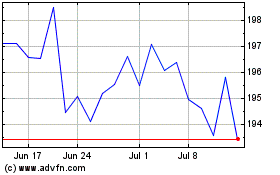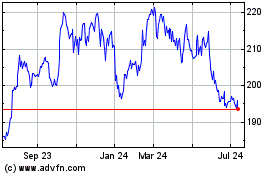NYPC's Lukken:MF Global Shows Challenges For Futures Brokerage Model
November 16 2011 - 2:28PM
Dow Jones News
The pressures that built on MF Global Holdings Ltd. (MFGLQ)
ahead of its collapse in late October highlight the difficulties
facing firms that handle futures trades, according to Walter
Lukken, head of New York Portfolio Clearing.
The added cost of complying with new regulations under the
Dodd-Frank financial law and potential for tighter restrictions on
investments of customer money add to an already tough climate for
futures-clearing firms to turn a profit, Lukken said at an event
Wednesday.
"I think you could see more consolidation, or a lack of a home
for retail customers or local traders at the CME," said Lukken, a
former acting chairman of the Commodity Futures Trading Commission
who now heads the futures clearinghouse backed by NYSE Euronext
(NYX) and the Depository Trust & Clearing Corp.
MF Global's push into more-risky investing--including the
positions linked to European sovereign debt that factored into its
downfall--was driven in part by former Chief Executive Jon
Corzine's desire to build the firm into a more-profitable
entity.
The New York firm filed for bankruptcy Oct. 31 after a surprise
quarterly loss and series of credit downgrades prompted investors
and trading partners to lose faith in MF Global, and a last-ditch
effort to sell the firm failed.
A central part of MF Global's business lay in its role as a
member of clearinghouses such as NYPC and that operated by CME
Group Inc. (CME). The firm used that status to facilitate the
transactions of smaller brokers, asset managers and floor
traders.
A chief source of income for such futures commission merchants
has been the interest earned on client money held on deposit, but
this largely dried up after central banks around the world heavily
cut rates in an effort to keep credit flowing after the 2008
financial crisis.
In response such firms have moved into new lines of business,
such as MF Global's push to embrace more principal risk by taking
the other side of customer trades. Futures clearing firms have also
defended an expanded range of ways to invest customer money.
Some of those options may disappear, however, with CFTC
officials voicing support for a rule proposed last year that would
curtail some methods of investing client assets. Sitting CFTC
Chairman Gary Gensler at the same event Wednesday voiced support
for such a measure, which he said would reduce potential conflicts
of interest.
"As the CFTC revisits what type of [assets] they can invest in,
that's going to take profitability out of the FCM model," said
Lukken.
One possible result, Lukken said, is that such futures firms
gravitate toward institutional investor clientele, leaving fewer
firms to service smaller segments of the market like retail
investors or floor traders.
"I don't think that's a good development," said Lukken. "We want
as broad an ecosystem in the trading environment as possible."
-By Jacob Bunge, Dow Jones Newswires; 312 750 4117;
Jacob.bunge@dowjones.com
CME (NASDAQ:CME)
Historical Stock Chart
From Jun 2024 to Jul 2024

CME (NASDAQ:CME)
Historical Stock Chart
From Jul 2023 to Jul 2024
